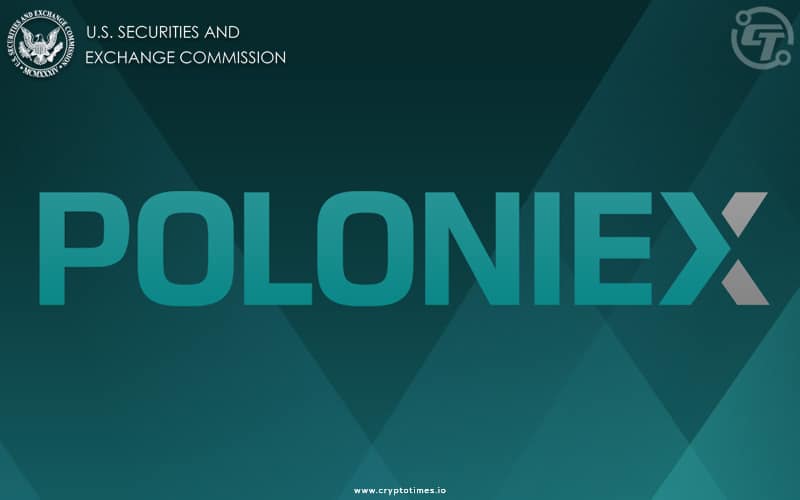The US SEC announced that Poloniex LLC. agreed to pay more than $10 million to settle charges for operating an unregistered online digital asset exchange.
Poloniex ran a web-based trading platform that facilitated buying and selling digital assets between July 2017 and November 2019. Some of those assets included investment contracts that are deemed securities under U.S. law.
According to the order, the company did not register as a national securities exchange to withstand its operation. It also did not operate under an exemption from registration. Hence, Poloinex breached Section 5 of the Exchange Act.
The SEC said that the trading platform met the criteria on an “exchange” as defined by security law. This was because the platform provided a nondiscretionary means for trade-orders to interact and execute through website, order book, and trading engine.
“Poloniex attempted to circumvent the SEC’s regulatory regime, which applies to any marketplace for bringing together buyers and sellers of securities regardless of the applied technology,” Kristina Littman, chief of the SEC Enforcement Division’s Cyber Unit, said.
The SEC investigation determined that Poloniex employees knew they were overlooking securities laws. Employees stated internally that they want to be “aggressive” in making available trading assets that might be considered securities in 2017. In July 2018, Poloniex determined that it would continue doing so despite admitting there was a “medium risk” of those assets being considered securities.
Ploniex agreed to a cease-and-desist order. The exchange would pay $8.49 million in disgorgement, $404,000 in pre-judgment interest, and a civil penalty of $1.5 million. The order also establishes a fund for the benefit of victims.
Hester Peirce slams SEC for settlement
Commissioner Hester Peirce commented on the US SEC for its settlement with a cryptocurrency exchange, Poloniex. She said that the settlement continues the agency’s “enforcement-centric approach to crypto”.
Also Read: The SEC Charges its First Defi Case for Unregistered Sale Of $30 Million
She criticized the SEC for failing to give clarification for businesses with digital assets. SEC didn’t determine whether an asset is secure. It also determines what licenses and exemptions are required to operate a cryptocurrency exchange.
“Sure, Poloniex could have tried to register as a securities exchange or, more likely, as a broker-dealer to operate an alternative trading system (ATS), a type of regulated trading venue that might be better able to accommodate non-traditional securities. Had it done so, it likely would have waited . . . and waited . . . and waited some more.”







